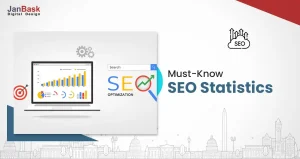
In an era where search engines have become increasingly sophisticated in evaluating websites, off-page optimization holds immense power. Search algorithms now consider factors beyond your website's content and structure to determine its credibility and relevance. By focusing on off-page SEO services, you can harness these signals to build a formidable online presence, driving more traffic and ultimately achieving higher rankings.
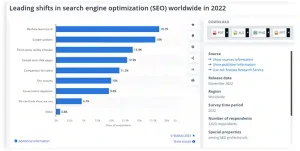
With that said, welcome to our comprehensive off page SEO checklist, a carefully curated arsenal of strategies and tactics designed to propel your website to the top of search engine results pages (SERPs). In this blog post, we'll unveil the secrets behind off-page optimization and equip you with the off page SEO techniques you need to conquer the digital landscape.
Unlock Your SEO Potential Now!

Embracing the potential of off-page SEO is essential for businesses aiming to thrive and succeed in the highly competitive online marketplace. Here are some reasons why it is crucial for businesses:

Off page SEO techniques such as link building, social media marketing, and content promotion help businesses increase their online visibility. By strategically placing their brand and content on external platforms, businesses can reach a wider audience and attract valuable organic traffic to their website.
Search engines consider off-page factors like backlinks, social signals, and brand mentions as important ranking signals. By effectively implementing off-page SEO strategies, businesses can improve their search engine rankings, making their website more visible to potential customers who are actively searching for their products or services.
Off-page SEO is instrumental in building brand authority and trust. When reputable websites link to your content or mention your brand positively, it signals to search engines and users that your business is a reliable and trustworthy source of information. This boosts your brand's credibility and can lead to higher conversion rates and customer loyalty.
Link building, a core aspect of off-page SEO, helps businesses expand their reach by connecting with relevant and authoritative websites. Quality backlinks act as pathways for users to discover your website, driving targeted traffic and potentially converting visitors into customers. Furthermore, link building contributes to the long-term growth of your website's organic search traffic.
Off-page SEO involves leveraging social media platforms to promote content, engage with users, and build brand awareness. Businesses can establish a solid social media presence by actively participating in social media conversations, sharing valuable content, and building a community of followers. This, in turn, increases brand visibility, fosters customer engagement, and opens up new opportunities for lead generation and sales.
Off-page SEO plays a crucial role in reputation management for businesses. By monitoring and addressing online reviews, comments, and mentions, businesses can shape their online reputation and manage any negative sentiment. By proactively engaging with customers and addressing their concerns, businesses can build a positive brand image and maintain a stellar reputation.
Off-page SEO involves forging relationships with influencers and industry experts to amplify your brand's reach and credibility. Collaborating with influencers allows businesses to tap into their established audience base and leverage their expertise to generate buzz, increase brand exposure, and attract new customers.
Implementing a robust off-page SEO strategy gives businesses a competitive edge. By staying updated on industry trends, analyzing competitor strategies, and consistently optimizing off-page factors, businesses can surpass their competitors in search engine rankings, brand visibility, and online authority.
Learning how to do off page SEO properly is essential for boosting your website's authority and driving organic traffic. If you are facing difficulty building your presence online, hiring professional off-page SEO services can significantly help improve search engine rankings.
Understanding the off page SEO factors is crucial for improving your website's visibility and search engine rankings. By implementing the following off page SEO checklist, you can enhance your website's performance, increase visibility in search results, and attract targeted organic traffic. 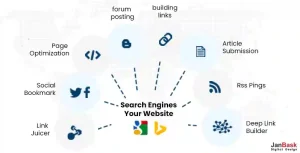
By setting up Google Search Console, you can gain valuable insights into how Google crawls and indexes your site, identify and fix indexing errors, submit sitemaps, and receive notifications about critical issues that may affect your site's visibility. It also provides data on search queries, impressions, and click-through rates, helping you understand how users interact with your site in search results.
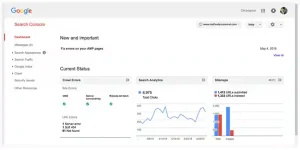
By setting up Google Analytics, you can track and analyze key metrics such as website traffic, user behavior, traffic sources, conversions, and more. This data helps you understand your audience, measure the effectiveness of your off-page SEO efforts, and make informed decisions to optimize your website's performance.
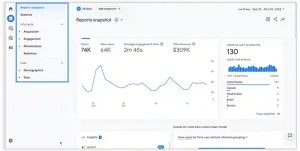
Evaluating your backlink profile is crucial for understanding the quality and quantity of backlinks that contribute to your site's authority and search engine rankings. Off-page SEO tools like Ahrefs, Moz, or SEMrush can help you analyse your backlink profile and identify high-quality backlinks as well as any spammy or low-quality links. By understanding your backlink profile, you can devise strategies to earn more authoritative backlinks and improve your site's visibility in search results.
Analysing your competitors' backlink profiles can provide insights into their off-page SEO strategies and help you identify potential link-building opportunities. Off-page SEO tools like Ahrefs' Site Explorer or Moz's Link Explorer allow you to analyse your competitors' linking domains, anchor text distribution, and top-performing pages. By studying your competitors' backlink profiles, you can discover authoritative sources, industry influencers, and content ideas that can guide your own link-building efforts and improve your site's authority.
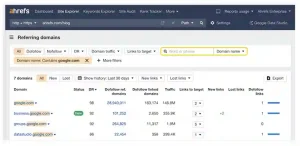
Internal linking helps search engines understand the structure and hierarchy of your site's content, distributes link equity, and improves the crawlability and indexability of your site. By strategically linking related pages, you provide a clear navigation path for users and search engines. This improves user experience, allows for the discovery of deep content, and helps search engines understand the importance of different pages on your site. Proper internal linking can improve your site's authority, search engine rankings, and overall user engagement.
It is important to regularly monitor and fix 404 errors on your website. You can use Off-page SEO tools like Google Search Console or website auditing tools to identify and resolve these errors. Fixing 404 errors involves setting up proper redirects, updating internal links, or creating custom 404 error pages that provide helpful information and guide users to relevant content. By resolving 404 errors, you ensure a seamless user experience, improve crawl ability for search engines, and retain valuable traffic.
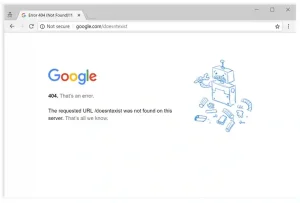
Conduct keyword research and incorporate relevant keywords naturally within your content and meta tags. Ensure your website has a clear site structure, organized navigation, and descriptive URLs. Use proper header tags to structure your content and make it more readable. By optimizing your site's on-page SEO, you provide search engines with clear signals about your content's relevance and improve your chances of ranking higher in search results.
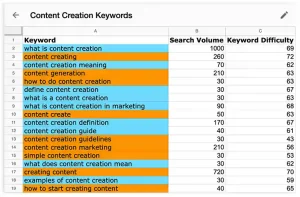
Assessing your link building options helps you identify strategies and opportunities to build a strong backlink profile. These options can include guest blogging on authoritative websites, reaching out to industry influencers for collaborations, creating valuable content that naturally attracts backlinks, or participating in relevant directories or resource pages. The key is to focus on acquiring links from reputable and relevant sources that are in line with your website's content and industry. A strong backlink profile signals to search engines that your website is trustworthy and authoritative.
For businesses targeting local audiences, updating your local citation and directory profiles is crucial for local SEO. Local citations refer to mentions of your business name, address, and phone number (NAP) across online directories, review platforms, and social media profiles. Ensure that your NAP information is accurate and consistent across all platforms.

Update your Google My Business listing with relevant categories, business hours, photos, and customer reviews. Additionally, list your business in relevant local directories and industry-specific directories. By updating and optimizing your local citation and directory profiles, you improve your online visibility in local search results, increase your chances of appearing in Google's Local Pack, and make it easier for potential customers to find and connect with your business.
By contributing valuable and informative content to authoritative websites, you can establish yourself as an industry thought leader and gain exposure to a new audience. Guest blogging also provides opportunities to include backlinks to your own website, which can improve your search engine rankings and drive targeted traffic.
By investing in paid ads, you can increase brand visibility, drive immediate traffic to your website, and complement your organic SEO efforts. It is crucial to create compelling ad copy, select relevant keywords or targeting options, and optimize your campaigns to maximize their effectiveness and return on investment.

Content marketing can take various forms, such as blog posts, articles, videos, infographics, and ebooks. By consistently delivering high-quality content, you can increase brand awareness, drive organic traffic, and nurture customer relationships. Sharing content through social media, email marketing, and other channels amplifies its reach and impact.
Participating in online forums and communities relevant to your industry allows you to connect with like-minded individuals, answer questions, and provide valuable insights. By actively engaging in discussions and sharing your expertise, you can establish yourself as an authority in your niche and build relationships with potential customers or industry influencers. Forums can drive targeted traffic to your website, generate backlinks, and help you stay updated on industry trends and customer needs. It is important to contribute genuinely, add value to discussions, and follow forum guidelines to build a positive reputation.
Hosting your own podcast or appearing as a guest on relevant podcasts allows you to reach a dedicated audience and establish your authority in your industry. By sharing insights, expertise, and stories through podcasts, you can increase brand exposure, engage with your target audience, and potentially attract new customers or followers.
Understanding whether users are seeking informational, transactional, or navigational content allows you to align your off-page content and strategies accordingly. By providing valuable and relevant information that matches user intent, you can attract more targeted traffic, increase engagement, and improve conversion rates.
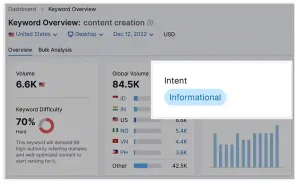
Using HTTPS ensures data integrity and protects sensitive user information, such as passwords or credit card details. Search engines prioritize secure websites in their rankings, so implementing HTTPS improves your website's security, instills trust in users, and can positively impact your search engine rankings.
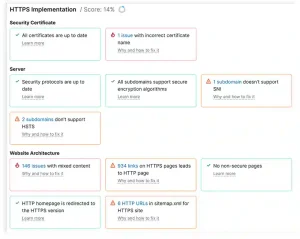
Optimizing your site's speed helps provide a seamless browsing experience, reduces bounce rates, and improves engagement. Off Page SEO Techniques such as compressing images, minifying code, enabling browser caching, and utilizing content delivery networks (CDNs) can significantly improve your site's speed. Faster-loading websites are more likely to rank higher in search results and attract and retain visitors.
A mobile-friendly website adjusts its layout and design to provide optimal viewing and usability on different screen sizes. This enhances user experience, reduces bounce rates, and improves search engine rankings, especially for mobile searches. The main elements to follow the off page optimization checklist are responsive design, fast-loading pages, and intuitive navigation.
Redirect chains and loops occur when a series of redirects leads to a never-ending loop or a chain of excessive redirects. These issues can confuse search engines and negatively impact user experience. Use Off page SEO techniques like Screaming Frog or Redirect Path to identify and fix any redirect chains or loops. Ensure that redirects are set up correctly, and aim to have a single redirect from the original URL to the final destination to improve site performance and crawlability.
Duplicate content can dilute the visibility of your pages in search results and lead to penalties from search engines. Conduct regular audits using tools like Copyscape or Siteliner to identify and address duplicate content issues. Implement canonical tags, 301 redirects, or rewrite the content to ensure uniqueness and improve search engine visibility.
Analyse metrics such as traffic, engagement, and conversions to identify high-performing and underperforming content. Update, optimize, or repurpose underperforming content to improve its visibility and value. This helps you maintain a high-quality website, enhance user experience, and boost your search engine rankings.
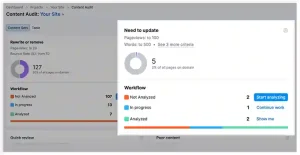
Keyword cannibalization occurs when multiple pages on your website compete for the same target keywords. This can lead to confusion for search engines and result in lower rankings for those keywords. Conduct keyword research and analyze your website's pages to identify instances of keyword cannibalization. Adjust your content, optimize page titles and meta tags, and consider consolidating similar content to ensure each page targets unique and relevant keywords. This helps improve search engine visibility and ensures a clear focus for each page.
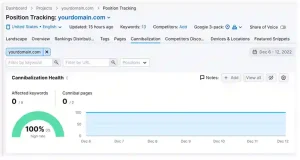
Claim and verify your business listing on Google My Business, ensuring that your business information is accurate, complete, and up-to-date. Add relevant categories, business hours, contact information, high-quality photos, and encourage customer reviews. Optimizing your Google Business Profile increases the chances of appearing in local pack results and improves your online reputation.
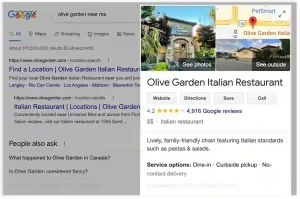
Many businesses rely on off-page SEO services to increase their website's visibility, attract organic traffic, and boost their online reputation.
By regularly monitoring and analysing these metrics, you can gain insights into the effectiveness of your off-page SEO efforts, identify areas for improvement, and refine your strategies to achieve better results in terms of visibility, authority, and website performance.
Monitor the number and quality of backlinks pointing to your website. Tools like Ahrefs, Moz, and SEMrush provide valuable insights into backlink profiles, allowing you to assess the overall health and authority of your link profile.
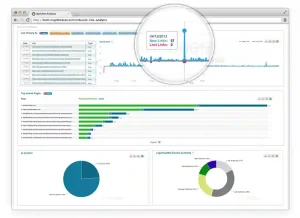
Use Google Analytics or other website analytics tools to track the traffic generated from off-page efforts such as guest blogging, social media platforms, influencer collaborations, and content syndication. By monitoring referral traffic, you can gauge the effectiveness of your off-page strategies in driving visitors to your website.
Social media platforms play a significant role in off-page SEO. Monitor metrics such as follower growth, engagement (likes, comments, shares), reach, and click-through rates (CTRs) for the links shared on social media. These metrics can help you assess the impact of your social media efforts and determine which platforms and content resonate most with your audience.
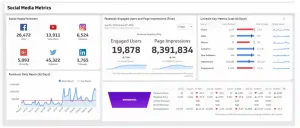
Keep track of brand mentions across the web, including social media, blog posts, news articles, and forums. Off page SEO techniques like Google Alerts, Brand Mentions, or Mention can help you monitor and measure the volume and sentiment of brand mentions. Positive brand mentions indicate a strong off-page presence and increased brand awareness.
While off-page SEO primarily focuses on activities outside of your website, it ultimately aims to improve your search engine rankings. Regularly monitor your website's rankings for target keywords and key phrases. Tools like Google Search Console, SEMrush, or Moz can provide insights into your website's organic search performance and help you assess the impact of off-page SEO efforts on your rankings.
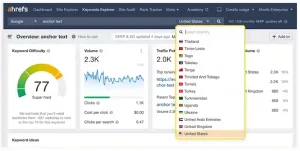
Domain authority is a metric that quantifies the overall strength and authority of a website. Tools like Moz's Domain Authority or Ahrefs' Domain Rating can provide an indication of your website's authority. Tracking changes in domain authority over time can help you gauge the effectiveness of your off-page SEO efforts in building a stronger online presence.
Ultimately, the success of off-page SEO efforts should be measured by their impact on conversions and goal completions. Set up conversion tracking in Google Analytics to measure the number of leads, sales, or other desired actions that can be attributed to your off-page efforts. This will give you a clear understanding of how off-page SEO contributes to your overall business objectives.
1. What is off-page SEO, and why is it important for ranking higher?
Off-page SEO refers to optimization activities done outside of your website, such as link building, social media marketing, and brand mentions. It's important because search engines consider off-page factors when determining a website's credibility and relevance. By implementing effective off-page SEO strategies, you can improve your website's authority, visibility, and ultimately, your rankings.
2. How does link building contribute to off-page SEO?
Link building plays a crucial role in off-page SEO. By acquiring high-quality backlinks from authoritative and relevant websites, you signal to search engines that your content is valuable and trustworthy. Backlinks act as votes of confidence, boosting your website's authority and increasing its chances of ranking higher in search results.
3. Can social media impact off-page SEO?
Absolutely! Social media platforms offer a valuable opportunity to amplify your off-page SEO efforts. By promoting your content, engaging with your audience, and building a strong social media presence, you can increase brand awareness, attract traffic, and potentially earn backlinks. Additionally, social signals from platforms like Facebook and Twitter can indirectly influence search engine rankings.
4. How can I measure the effectiveness of my off-page SEO efforts?
You can analyse backlink profiles using tools like Ahrefs or Moz, track referral traffic from external sources through Google Analytics, monitor brand mentions using tools like Google Alerts or Mention, and assess your website's search engine rankings for target keywords. Additionally, tracking social media metrics and conversion rates can provide insights into the impact of your off-page efforts.
5. Are there any risks associated with off-page SEO?
While off-page SEO can be highly beneficial, it's essential to approach it responsibly. Some risks include engaging in unethical or spammy link-building practices, which can lead to penalties from search engines. It's important to focus on quality over quantity when building backlinks, avoid purchasing links, and prioritize natural link acquisition. Staying up-to-date with search engine guidelines and best practices will help you mitigate any risks and ensure long-term success with your off-page SEO efforts.
Mastering the art of off-page SEO is crucial for businesses aiming to rank higher, gain visibility, and establish their authority online. Remember, off-page SEO is a continuous process that requires diligent effort and strategic implementation. By focusing on the above guide on how to do off-page SEO step by step, you can elevate your website's position in search engine rankings and drive meaningful results for your business.
If you're seeking professional guidance and expertise in implementing off-page SEO strategies, consider partnering with Jan Bask. As an industry-leading off-page SEO services company, JanBask offers a range of tailored solutions to enhance your website's visibility, boost organic traffic, and maximize your online presence. With our expertise and proven track record, JanBask can help you navigate the intricacies of off-page SEO and achieve remarkable success in the digital landscape.
Interested in our Seo Services

L
Thank you for this comprehensive guide on off-page SEO.
A
Your blog offers a comprehensive overview of off-page SEO techniques. It’s a valuable resource for anyone looking to boost their website’s visibility.
C
Your blog provides valuable and informative content on off-page SEO, making it a valuable resource for digital marketers and website owners.
J
Thank you for this insightful post on off-page SEO. It’s a topic that often gets overlooked, but it’s a critical component of a well-rounded SEO strategy. Your explanations and tips are incredibly helpful.
P
Your blog provides a great balance of theory and practical tips for off-page SEO.
w
This checklist for off-page SEO is a goldmine of actionable strategies! Off-page tactics are essential for boosting rankings and driving organic traffic. Thanks for compiling such a comprehensive guide—it’s a must-have for anyone serious about SEO.